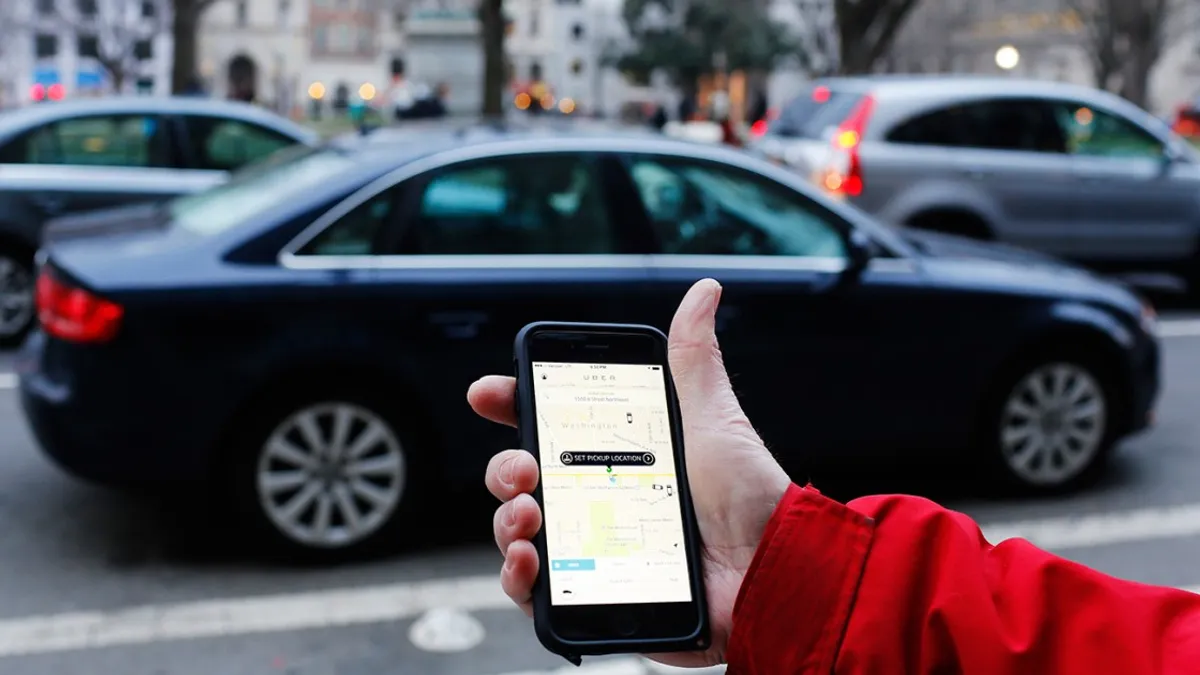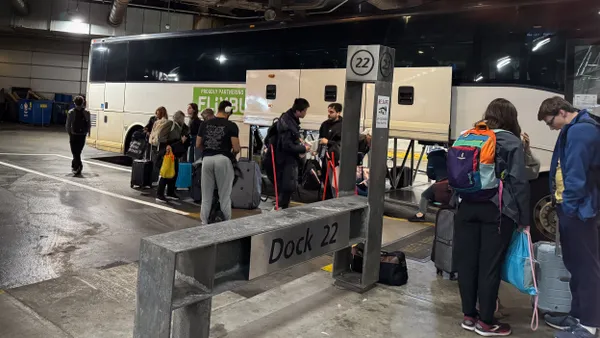Dive Brief:
- Ahead of the next multi-year European Union (EU) budget, ride-hailing giant Uber is calling on the European Commission and member countries to boost support for public transit. In an open letter, Pierre-Dimitri Gore-Coty, the company’s Regional General Manager for Europe, Middle East and Africa, said the time is right to “reinforce investments in an integrated mobility framework that puts public transport at its core.”
- The rapid changes in mobility options, Gore-Coty writes, have moved people away from car ownership, but he adds that it is still vital to have "high capacity, high frequency systems running on dedicated rights of way such as metros, light rail lines and upgraded bus systems."
- Uber recently launched a $10 million Global Fund for Sustainable Mobility to gather ideas on the future of mobility, and has become a member of the International Association of Public Transport.
Dive Insight:
Coming ahead of the company’s planned IPO, the letter is another signal that Uber doesn’t see itself as just a ride-hailing service, but rather as an innovator for the future of mobility. In the past year, Uber has acquired dockless bike and scooter company Jump, it expanded a partnership with car rental service GetAround and became a strategic partner of Lime's scooter business, to say nothing of the expansion of its food and freight delivery services.
Uber had an initially rocky relationship with public transit agencies, who accused it and competitor Lyft of siphoning off passengers. But as Uber has shared more of its services — like its traffic data and aggregation tool Uber Movement — with more public agencies, that relationship has thawed. The company has also partnered with software company Masabi to offer more public transportation information to cities. The $10 million investment in new mobility ideas also signals a willingness to explore new, non-automotive options.
In announcing that global fund, Uber CEO Dara Khosrowshahi said the company "has become an important part of the transportation fabric in cities," adding, "we’re ready to do our part to help cities that want to put in place smart policies to tackle congestion — even if that means paying money out of our own pocket to pass a tax on our core business," signaling support for a congestion tax.
Helping cities expand public transit is a likely cheaper alternative, and one that furthers Uber’s sustainability goals. Success in Europe — where support for public transportation has traditionally been high — could offer Uber a model to lobby for similar investments in U.S. cities.











